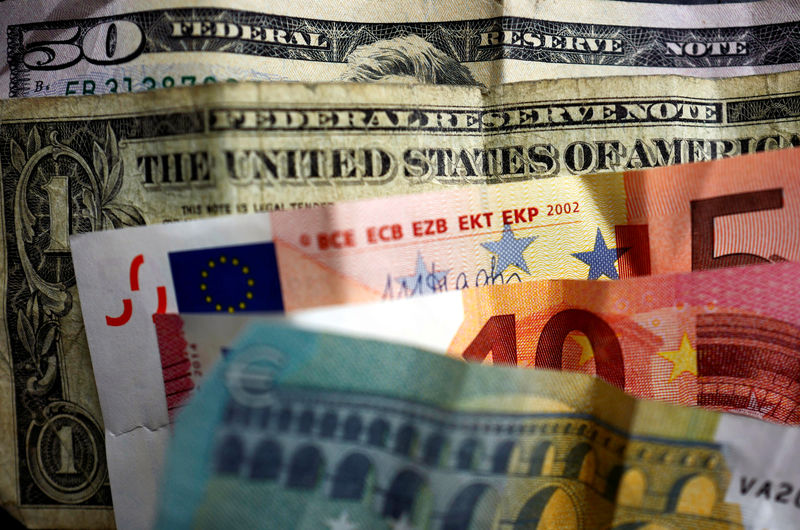By Peter Nurse
Investing.com - The U.S. dollar remained strong, while the euro traded near a 21-month low, with the war in Ukraine likely to weigh on European growth while the Federal Reserve lines up interest rate hikes.
At 2:55 AM ET (0755 GMT), the US Dollar Index, which tracks the greenback against a basket of six other currencies, traded 0.1% higher at 97.525.
EUR/USD fell 0.2% to 1.1097, just above its overnight low of 1.1058, the weakest since May 2020, and down 1.5% for the week so far.
USD/JPY rose 0.2% to 115.72, GBP/USD edged higher to 1.3406 and AUD/USD climbed 0.3% to 0.7319, climbing to a new seven-week high with the Australian economy seen benefiting as prices for its commodity exports soar.
Federal Reserve Chair Jerome Powell stated on the first day of his two-day testimony to Congress that he was still comfortable with supporting an interest rate increase of 25 basis points at the central bank’s next meeting later this month, prioritizing the fight against inflation over the risks from Russia’s invasion of Ukraine.
While his remarks effectively take a half-point hike off the table when the central bank meets in the middle of March, this is still likely to put the Fed several months ahead of the European Central Bank even before the likely impact of the Ukraine conflict is accounted for.
“The macro dent from Putin's war will clearly cost Europe far more heavily than the U.S.,” analysts at ING said, in a note. “The relative insulation of the US economy is allowing the Fed to remain in hawkish mood and probably have the most cause of any to stick to tightening plans.”
Eurozone inflation soared to another record high in February, climbing to 5.8% on an annual basis from 5.1% the previous month, data from Eurostat showed on Wednesday.
These figures illustrated the dilemma for the European Central Bank, as fears are rising that the Ukraine war will stifle growth in the region but fuel even higher inflation due to supply disruptions, creating the dreaded stagflation.
That said, ECB Chief Economist Philip Lane said late Wednesday that the central bank is closely monitoring the economic consequences of the war in Ukraine and will do whatever’s necessary to support the continent’s rebound.
Elsewhere, the ruble is continuing to slump as Russian citizens try to ditch the currency, prompting the country's central bank to impose a 30% commission on foreign currency purchases by individuals on currency exchanges, Reuters reported, citing a letter from the regulator.
USD/RUB traded 3.8% higher at 110.0261, near a new record high.
Finally, USD/CAD fell 0.1% to 1.2614, after the Bank of Canada raised its benchmark interest rate to 0.5% from a record-low 0.25% on Wednesday, hiking for the first time since October 2018, and indicated it would need to go higher to tackle inflation.
